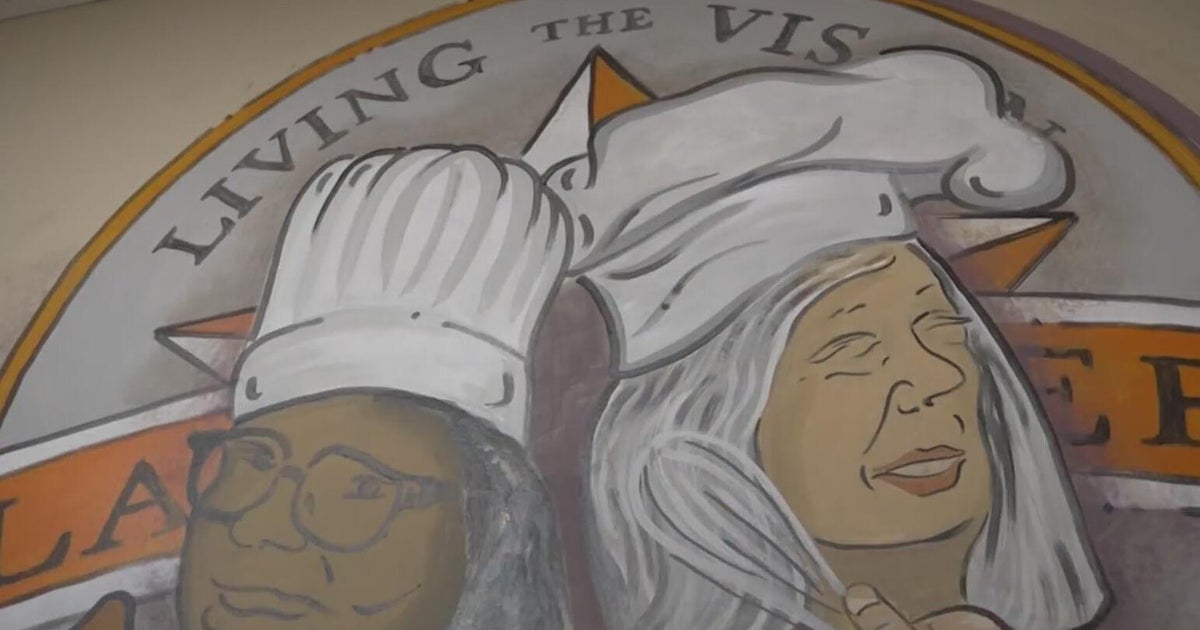Yahoo / Tumblr Deal Renews Debate Over Techie Dropouts
SUNNYVALE (CBS / AP) -- It's one thing to say tech geniuses don't need degrees. After all, Bill Gates, Steve Jobs and Mark Zuckerberg all dropped out of college.
But now we've got David Karp, who doesn't even have a high school diploma. Karp, 26, founded Tumblr, the online blogging forum, and sold it to Yahoo for $1.1 billion.
Which raises the question: When is it OK for a wunderkind to drop out of school?
Some folks in Silicon Valley and elsewhere say a conventional education can't possibly give kids with outsize talents what they need. Others, like Vivek Wadhwa, a fellow at Stanford Law School who teaches and advises startup companies, say dropping out to pursue a dream is like "buying a lottery ticket -- that's how good your odds are here. More likely than not, you will become unemployed. For every success, there are 100,000 failures."
Related Coverage:
- Yahoo Looks To Regain Its Cool With $1.1 Billion Tumblr Deal
- Tumblr CEO's Mom Gushes Over Son's $1B Deal With Yahoo
But what about kids who are so good at computer programming that schools can't teach them what they need to know? "That's what internships are for; that's what extracurricular activities are for," says Wadhwa, who has founded two companies.
Karp, in an interview with The Associated Press on Monday, said he hopes teenagers don't look at his success as an excuse for leaving school. "That is not a path that I would haphazardly recommend to kids out there," he said. "I was in a very unique position of knowing exactly what I wanted to do at a time when computer science education certainly wasn't that good in high school in New York City."
Karp's mother gave him the option of home-schooling when he was 14, after he completed his freshman year at the Bronx High School of Science, an elite New York City public school that only admits students who score well on a difficult entrance exam. Karp took Japanese classes and had a math tutor while continuing with an internship at an animation production company, but by age 16, he was working for a website and was on his way to become a tech entrepreneur. He never did get his diploma. Karp's mother told the AP that she let him leave school because she realized "he needed the time in the day in order to create."
That resonates with Penny Mills of Hudson, Mass., who let her son Thomas Sohmers, 17, drop out of 11th grade this year. "I could see how much of the work he was doing at school wasn't relevant to what he wanted to learn," she said. "He always wanted to learn more than what the schools wanted to teach him. At times it was very frustrating. I was fortunate to find people that were able to teach him more, but he has gone beyond what high school could ever give him."
Thomas has been working at a research lab at the esteemed Massachusetts Institute of Technology since he was 13, developing projects ranging from augmented reality eyewear to laser communications systems. He just won a Thiel Fellowship, which gives $100,000 to 20 people under the age of 20 each year so they can skip college to focus on research or a dream, whether it's a high-tech project, a business or a nonprofit. But his mom says she would have let him drop out even if he hadn't won the award.
"The part that really bothers me is that there are a lot of Thomases out there and their needs are not being met," said Mills.
Thomas says he's sad to be leaving his teenage friends behind, but he's excited about the future. And he has mixed feelings about his years in school. "I've had some amazing, great teachers that really have the passion to teach, but most of what is in school now is teaching to a test," he said. "It's really sad. You're not learning the skills for how to solve the problem -- you are just learning the answer to this question that is going to be on the test."
Susan Bartell, a psychologist based in Port Washington, New York who works with adolescents and their families, says she frequently encounters parents who are convinced that their kids are extraordinarily gifted. But she cautions that it's "the very rare exception when this decision (to drop out) makes sense." In the case of Karp, she said, "it worked out, but almost always it doesn't -- even if a kid is extremely gifted. School is about much more than just academics and in most cases, even the most gifted kids need the socializing."
And not all young moguls take Karp's route. Earlier this year, a 17-year-old from London, Nick D'Aloisio, sold an app he created to Yahoo for $30 million -- but he decided to stay in school.
On the other hand, there are examples of successful individuals in many fields who lack a high school diploma, from top performers such as Jay-Z to billionaire businessmen such as Richard Branson.
The tech community may be different from other industries. Degrees are not necessarily seen as a hallmark of achievement and programmers are judged on their ability to type lines of code. You are what you create.
What also sets the field apart is that computer programming is not taught at every high school, and even when it is, the most talented students often either "surpass the curriculum or feel it's not relevant to them," said Danielle Strachman, program director for the Thiel Fellowship. "They want to move at their own pace."
Strachman also emphasized that just because someone has left school, doesn't mean they've stopped learning. The Thiel program provides not just funding, but a community of peers and mentors to help recipients reach their goals. And they can always go back to pursue a degree when the fellowship is over.
It's a goal that even Karp has his eye on-- despite his newfound wealth. "I hope I have an opportunity to go to school at some point," he said, "and study something completely different."
(Copyright 2013 by CBS San Francisco. All Rights Reserved. This material may not be published, broadcast, rewritten, or redistributed.)







